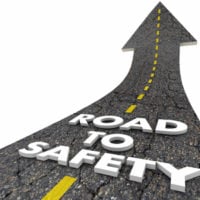Deadline: 09-Sep-21
The Department of Commerce has announced the applications for the Great Lakes Bay Watershed Education and Training (B-WET) Program to support locally relevant, authentic experiential learning in the K-12 environment.
The FY22 Great Lakes B-WET funding announcement focuses on a single priority area of projects combining long-term, classroom-integrated Meaningful Watershed Educational Experiences (MWEEs) for students and teacher professional development. For Great Lakes BWET, applicants may be physically located in any U.S. state; however, education projects must target teachers and students in the Great Lakes region. For the purposes of this solicitation, the Great Lakes region includes counties in the Great Lakes watershed in the states of New York, Pennsylvania, Ohio, Michigan, Indiana, Illinois, Minnesota, and Wisconsin.
The Great Lakes B-WET program supports grantee capacity building and connects grantees to local NOAA assets and relevant STEM (Science, Technology, Engineering, and Mathematics) expertise, while being responsive to local education and environmental priorities. For the purposes of this solicitation, the Great Lakes region is defined as counties in the Great Lakes watershed in the states of New York, Pennsylvania, Ohio, Michigan, Indiana, Illinois, Minnesota, and Wisconsin
Program Priorities
Proposals must address the following priority:
- Projects combining long-term, classroom-integrated Meaningful Watershed Educational Experiences (MWEEs) for students and teacher professional development.
- All proposals should also demonstrate a connection to the Great Lakes basin through the watershed system so that students understand how their actions can affect the Great Lakes ecosystem through their local watershed.
- Additionally, priority will be given to applicants who
- show prior experience in working in the Great Lakes region,
- show prior experience with Great Lakes regional issues,
- demonstrate partnerships with local organizations in the Great Lakes region that have prior experience on proposed projects or regional issues.
All proposals submitted should also address the following universal elements:
- Involve external sharing and communication: projects should include a mechanism that encourages the students, teachers, and project staff to share their experiences with peers, other students, and their community (e.g., through a student mentoring program, newsletters, peer-to-peer presentations, conferences, community events, media/social media).
- Demonstrate partnerships: project proposals should include multiple partners. A partnership is a collaborative working relationship between two or more organizations. Partners should be actively involved in the project, not just supply equipment or curricula. Letters from each partner must be submitted with the application package to demonstrate the level of commitment and involvement.
- Be aligned to state and/or local learning standards.
- Demonstrate alignment to the NOAA Education Strategic Plan, and incorporate NOAA Resources such as data, places, or collaborations with NOAA entities as partners. NOAA has a wealth of applicable products, places, and services, as well as a cadre of scientific and professional experts who can enhance student experiences both in the classroom and in the field and serve as career role models.
- Be aligned to environmental literacy principles, as appropriate: “Great Lakes Literacy Principles” and/or “Climate Literacy: The Essential Principles of Climate Science”.
Funding Information
- The Great Lakes B-WET program awards are funded through the Great Lakes Restoration Initiative. It is anticipated that approximately $920,000 may be available in FY 2022 to fund eligible applications.
- The total Federal amount that may be requested from NOAA should not exceed $80,000.
- The minimum Federal amount that should be requested from NOAA is $30,000.
- Applications requesting Federal support from NOAA for more than $80,000 or less than $30,000 may not be considered for funding.
- The period of awards is a maximum period of up to 18 months.
Eligibility Criteria
- Eligible applicants are K-12 public and independent schools and school systems, institutions of higher education, nonprofit organizations, state or local government agencies, interstate agencies, and Indian tribal governments.
- For-profit organizations, foreign organizations, and foreign public entities are not eligible to apply; however, for-profit and foreign organizations and foreign public entities may participate with an eligible applicant as a project partner. Likewise, Federal agencies are not eligible to receive Federal assistance under this announcement, but may be project partners.
- Applicants may be physically located in any U.S. state; however, education projects must target teachers and/or students in the Great Lakes watershed.
- City or township governments
- Native American tribal governments (Federally recognized)
- Independent school districts
- County governments
- Nonprofits having a 501(c)(3) status with the IRS, other than institutions of higher education
- State governments
For more information, visit https://www.grants.gov/web/grants/view-opportunity.html?oppId=333937








































